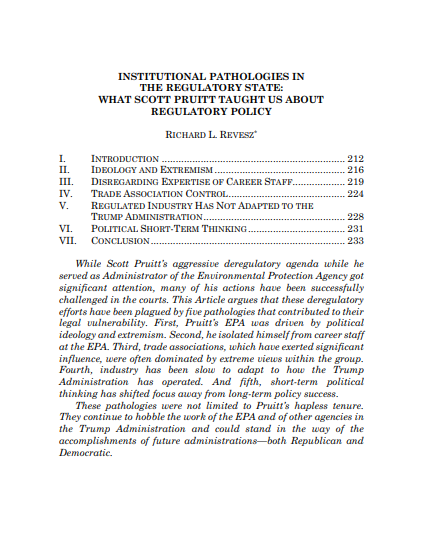-
Comments on Colorado’s Use of the Social Cost of Greenhouse Gases
The Colorado Public Utilities Commission (CPUC) proposed rule revisions to a recent clean energy bill, providing more information on how social cost of greenhouse gases (SCGG) estimates will be used. We submitted comments encouraging best practices for SCGG application that will help CPUC monetize climate externalities and weigh the costs and benefits of various decisions.
-
Testimony on Retirement of the San Juan Coal-Fired Power Plant
Jason Schwartz and Denise Grab prepared a testimony for the New Mexico Public Regulation Commission regarding a proposal to retire the San Juan Generating Units, a coal-fired power plant in New Mexico. Their testimony details how applying Social Cost of Carbon metrics would allow the Commission to better monetize and contextualize the climate impacts of the proposal. Retiring the San Juan coal units would deliver billions of dollars in benefits to agricultural productivity, property values, and human health.
-
Court Upholds New York’s Zero-Emissions Credit Program for Nuclear Power
The Albany County Supreme Court rejected a challenge to New York’s Zero-Emissions Credit (ZEC) program, which pays nuclear power plants for the value of avoided carbon emissions. The legal challenge focused largely on the state’s decision to use the Interagency Working Group’s Social Cost of Carbon (SCC) to value emissions.
-
Comments to EPA on Changes to New Source Review
We submitted comments to the Environmental Protection Agency (EPA) regarding changes to its New Source Review (NSR) applicability regulations. Our comments focus on EPA’s failure to perform a cost-benefit analysis for the proposed rule.
-
Comments on Alaska LNG Project
The Federal Energy Regulatory Commission's environmental assessment of the Alaska LNG project failed to provide a meaningful analysis of the pipeline project's climate effects. We submitted joint comments encouraging FERC to monetize the social cost of greenhouse gases in its Environmental Impact Statement.
-
Comments to EPA on Rescinding Its “Once In, Always In” Policy
The Environmental Protection Agency (EPA) is proposing to abandon its longstanding “Once In, Always In” policy, in turn allowing “major sources” that reduce emissions below major source thresholds to reclassify as “area sources” subject to less stringent regulation. We submitted comments detailing inadequacies in EPA’s assessment of the rule’s costs and benefits. The agency fails to analyze the rule’s aggregate emissions impacts, conduct its illustrative analyses against an appropriate baseline, account for the possibility of inadequate state enforcement, and monetize the health and environmental effects of emissions changes.
-
Comments on New Jersey’s Energy Master Plan
New Jersey’s 2019 Energy Master Plan (EMP) outlines how the state can achieve its emissions reduction target of 80% below 2006 levels, as well as 100% clean energy, by 2050. We submitted comments applauding improvements to the draft EMP and making further suggestions. Our comments encourage the state to establish a technology-neutral policy framework to achieve its emissions reduction goal, compensate distributed energy resources in a way that reflects their full social value, and implement reforms to advance related technological and regulatory frameworks. We also submitted comments last October, during the EMP scoping phase, that made suggestions on grid resilience, rate design, and energy storage incentives.
-
Petition to NHTSA for Reconsideration of Fuel Economy Penalties
We filed a petition requesting that the National Highway Traffic Safety Administration (NHTSA) reconsider and rescind a new rule reducing penalties for automobile manufacturers that fail to meet corporate fuel economy standards. Our petition explains how NHTSA’s analysis ignores financial and environmental benefits forgone by the rule and relies on flawed, even contradictory evidence. NHTSA’s weakened fuel economy penalties deprive the public of substantial benefits and should be rescinded.
-
Comments to Minnesota on Electric Resource Planning and the Social Cost of Carbon
The Minnesota Pollution Control Agency and Minnesota Department of Commerce requested comments on their proposal to consider resource planning scenarios using a range of both environmental and regulatory costs. Minnesota has been a leader among states on incorporating environmental externalities into electricity policy, and our comments encourage the agencies to continue requiring the use of the social cost of carbon.
-
Institutional Pathologies in the Regulatory State
What Scott Pruitt Taught Us About Regulatory Policy
While Scott Pruitt’s aggressive deregulatory agenda while he served as Administrator of the Environmental Protection Agency got significant attention, many of his actions have been successfully challenged in the courts. This Article, published in the Journal of Land Use & Environmental Law, argues that these deregulatory efforts have been plagued by five pathologies that contributed to their legal vulnerability.
Viewing recent projects in Climate and Energy Policy









